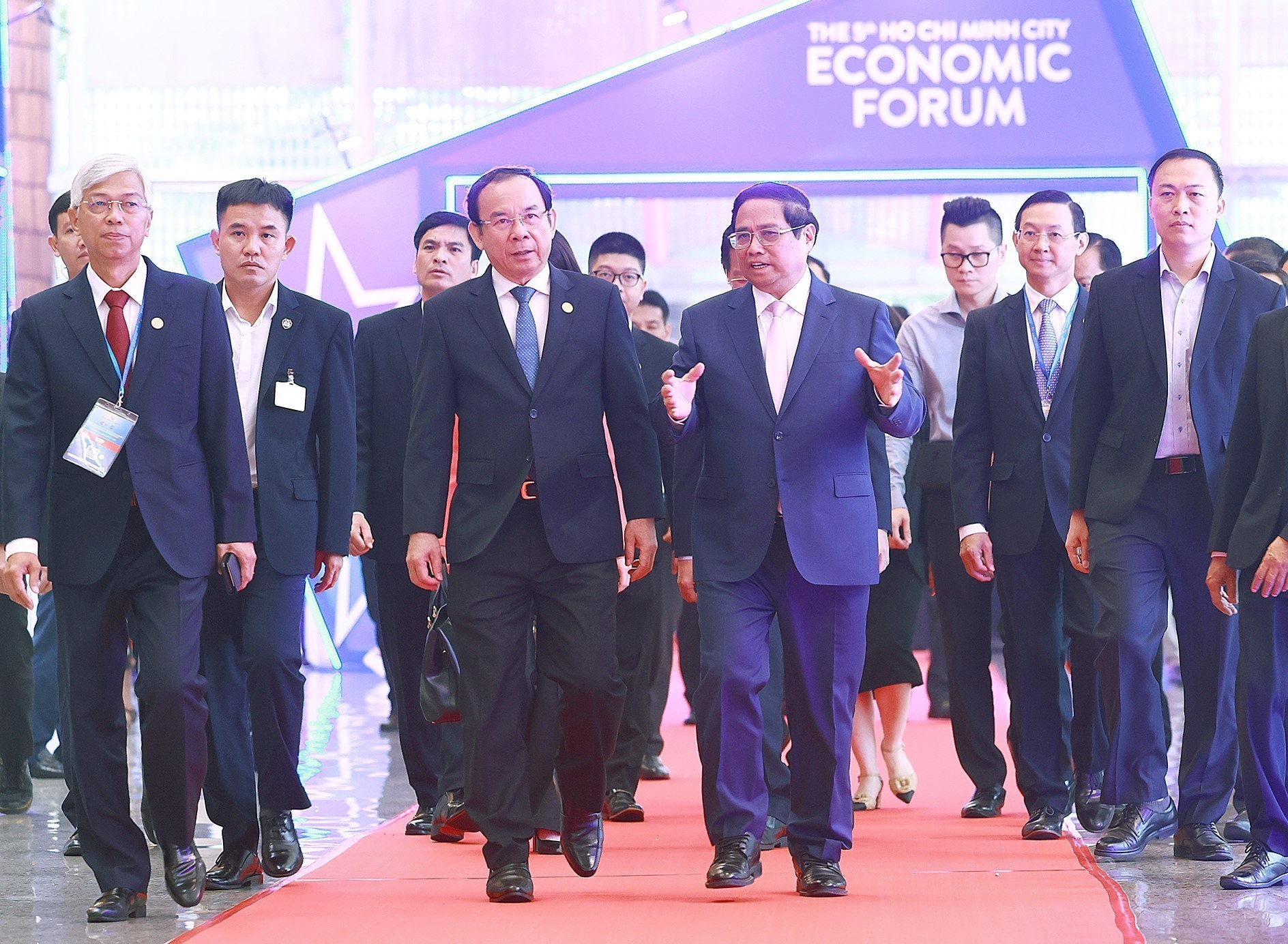AusCham participated in HCMC Economic Forum 2024
HCMC – On 25th September, AusCham joined with colleagues from Australian Embassy in Vietnam and Consulate-General participating in the HCMC Economic Forum 2024 (HEF 2024). The event's theme focused on industrial transformation - new driving force for the city's sustainable development.
This significant event drew the attendance of Prime Minister Pham Minh Chinh, the city's leaders and a large number of Vietnamese and foreign economic experts.
Opening the event, Secretary of the municipal Party Committee H.E. Nguyen Van Nen said that as an economic, financial, commercial, cultural, educational, scientific and technological centre with many contributions to the overall achievements of the country, HCM City is facing an urgent need to improve the quality of life of its residents and build a civilized, modern, and humane city.
The Politburo's Resolution 31 on the orientations and tasks to develop HCM City until 2030 with a vision to 2045 sets a target of turning HCM City into a modernity-oriented industrial city by 2030, and a city with modern industrial development on par with major cities in the region, reaching the continental level by 2045, he noted.
H.E. Nguyen Van Nen held that to achieve this target, the city has defined green and sustainable transformation as a key task, industrial transformation as the driving force, digital transformation as the breakthrough, and development cooperation as an important, inevitable measure.
The city is focusing on overcoming three major challenges in socio-economic infrastructure improvement, human resources quality enhancement and administrative reform, and mechanisms and policies to mobilise resources for development, he said.

With an area accounting for only 0.63% of the country’s total and a population making up 9.4% of the country's total, HCM City contributes 15.9% of GDP, 26.4% of total budget revenue, and 39.9% of international tourists of the whole country. Its export turnover and investment attraction rank first among localities across the country.
According to Pham Binh An, Vice Director of the HCM City Institute for Development Studies, the position of the city has yet to match its central role. The number of businesses of the city accounts for 30% of the country’s total, but their competitiveness has been modest, while the city’s contribution proportion to the country’s exports is reducing, reaching only 12% in 2023 and its industrial sector's contributions to the city's GRDP dropped to 19% in 2022, lower than the national average of 32%.
The city's industrial land area is 5,921 hectares, accounting for only 2.81% of the country’s total, he added.
An pointed to the need for the city to restructure its economy or transform its industrial sector, upgrading the value chain, and developing core industries, thereby seeking new growth drivers.
He advised the city to transform along three key axes - green transformation, digital transformation, sustainable development; restructuring and upgrading industries and areas with high added value; and arranging and connecting new development spaces through regional and area linkages.
Kiva Allgood, head of the Centre for Advanced Manufacturing and Supply Chain and member of the Executive Committee at the World Economic Forum, underlined that the main trends of industrial transformation in the world are influenced by the continuous emergence of new technologies. Industrial production has changed profoundly due to the shift in supply chains as well as the increasing demand for sustainable products, she said, while highlighting the impacts of artificial intelligence (AI) on the industrial sector.
She also pointed out impacts from climate change and geopolitical shift on the economy, holding that each country's level of readiness to adapt determines the ability it can seize opportunities in the wave of production and investment shifts after each fluctuation.
